Seeker Bio
Birding the Trans Canada Trail in Alberta Canada
8 Underappreciated Birding Hotspots in Alberta Canada
Alberta's Best Bird Watching Trails
Trans Canada Trail in Alberta Canada
The Trans Canada Trail (formerly the Great Trail) offers amateur and expert bird watchers, hikers, cyclists, horseback riders, cross-country skiers, snowmobilers, and ATVers over 3,000 km of trails and waterways to explore. In particular, the southern branch of the Trans Canada Trail in Alberta extends from the Saskatchewan border through Edmonton, Calgary, Red Deer, and Kananaskis Country before crossing into British Columbia over the Elk Pass. As part of our 14,000 km Come Walk With Us Expedition from the Atlantic to the Pacific Ocean we walked the southern route from east to west. Even though we visited during a record breaking drought, and during the heat of late summer, we enjoyed some fantastic bird watching experiences. The following is a list of our favourite underappreciated birding hotspots along the Trans Canada Trail in southern Alberta, Canada.
Cold Lake on Alberta's Iron Horse Trail St. Paul County, AB
Description: The Iron Horse Trail presents an opportunity to explore the transition between the boreal forest and the aspen parkland ecosystems. Furthermore, the region around Cold Lake features a wide variety of habitats, including aquatic wetlands and upland habitats, many of which can be easily accessed from Cold Lake Provincial Park and Campground.
Birds: Over 220 bird species have been reported on eBird at Cold Lake, including American White Pelicans, Western Grebes, Double-crested Cormorants, and Great Blue Herons from nearby nesting colonies. In addition, the sedge fens around the lake are a great place to look for Virginia Rails, Yellow Rails, and Sedge Wrens, while Blackburnian Warblers can be spotted in nearby stands of spruce and fir. Some of our favourite sightings along Alberta's Iron Horse Trail included a Great Horned Owl fledgling, Sharp-tailed Sparrows, and Lincoln Sparrows. Furthemore, we'd love to go back during fall migration to see the large flocks of staging waterfowl that fill the nearby wetlands and lakes.
Telford Lake, on Telford Lake Trail, Leduc, Alberta
Trail: Next on our list of underappreciated birding hotspots in Alberta is the Telford Lake Trail, which is an easy 8.2 km loop around Telford Lake in Leduc, AB. When we walked the wide, flat, crushed stone dust urban pathway we met hikers, cyclists, and bird watchers of all ages and skill levels out enjoying a leisurely afternoon. In addition, wooden boardwalks and lookouts provided excellent views of the lake and shoreline wetlands. Furthermore, a series of 10 interpretive signs around the lake provided information about the history, ecology, and wildlife of the area.
Description: The Telford Lake Trail is an urban pathway that provides easy access to a surprising diversity of habitats in a large and beautifully restored piece of the aspen parkland biome. Specifically, aspiring birders can search the open waters of the lake, its shoreline, several cattail marshes and wetlands, a small area of open meadow and grassland, nearby backyards and gardens, as well as a variety of snags and tree cavities and the sky above for birding treasures.
Birds: More than 140 bird species have been reported at Telford Lake, Leduc, Alberta. During our visit in late summer we enjoyed watching large groups of Ruddy Ducks, Red-necked Grebes, American Coots, and American White Pelicans out in the lake, while flocks of Franklin's Gulls circled overhead. In addition, we enjoyed a variety of backyard birds, including White-breasted Nuthatches, Baltimore Orioles, and an Evening Grosbeak. Moreover, mixed flocks of Barn, Cliff, Tree and Bank Swallows skimmed the surface of the lake, while the raucous calls of Yellow-headed Blackbirds emanated from the cattails.
Gaetz Lakes Sanctuary, Waskasoo Park Trail System, Red Deer, AB
Description: The Gaetz Lakes Sanctuary is Alberta's oldest federal migratory bird sanctuary. Amazingly, the 118 hectare protected area features wetlands, grasslands, spruce forest, poplar stands, and two oxbow lakes. Nature enthusiasts and birders can explore the property on 5 km of trails and boardwalks. During our visit, we explored the 1 km Dr. George Trail, which is paved, wheelchair accessible, and leads to a wooden bird blind overlooking one of the ponds, making it a great addition to our list of accessible birding hotspots on the Trans Canada Trail. We also investigated the 4 km Wishart Trail, which is more rugged, taking adventurous visitors up and down through forest habitats and to three separate lookouts around the lakes. Interestingly, the property is accessed through the Kerry Wood Nature Sanctuary, which is an environmental education center that features interactive exhibits, opportunities for natural history interpretation, guided tours of the property, and a gift shop.
Birds: Over 170 bird species have been sighted in the Gaetz Lakes Bird Sanctuary, including many forest bird species like Black-backed Woodpeckers, Western Tanagers, Northern Goshawks, and Orange-crowned Warblers. Open fields and shrubby areas provide habitat for owls, hawks, and falcons, and nesting areas for songbirds such as Savannah Sparrows, Gray Catbirds, and American Goldfinches. In addition, the Gaetz Lakes Bird Sanctuary is an important stop over place for migrating waterfowl in fall. When we visited, birding highlights included a small group of Common Goldeneyes floating on the pond, along with several Red-necked Grebes, as well as a family of American Coots.
Meadowlark Trail, Beisker, AB
Description: The trail traverses open, rolling grasslands and agricultural fields, with a few small cottonwood stands along the route. The landscape is dotted with pothole lakes and ponds, and there are also several stream and creek crossings along the route bordered by small areas of riparian forest.
Birds: Over 140 species have been observed in the area, and as its name suggests, the Meadowlark Trail is a great spot to observe Western Meadowlarks and other grassland species, such as American Pipits, Vesper Sparrows, and Loggerhead Shrikes. In addition, during our hike we soon discovered that the open landscape is a lovely spot to watch for hawks soaring overhead, such as Rough-legged, Sharp-shinned, Swainson's, and Red-tailed Hawks, American Kestrels, and Merlins. Furthermore, other highlights include chances to spot Sandhill Cranes in spring, a Great Horned Owl in winter, or perhaps even a shorebird, such as a Baird's Sandpiper or Wilson's Phalarope in late summer.
Inglewood Bird Sanctuary and Nature Center, City of Calgary Trails, AB
Description: The Inglewood Bird Sanctuary is a 39 hectare wildlife reserve that has been providing migratory birds with a place to rest and refuel since 1929. Its trails take hikers and nature enthusiasts through forest stands, areas of dense scrub, riparian woodlands, a patch of grassland, and across a small pond within the bird sanctuary. We enjoyed visiting several viewing platforms that offered views of the pond and surrounding wetlands, taking a break at some of the benches located throughout the park, and visiting the picnic area. Visitors can also stop by the Nature Center, which features interpretive exhibits and information about local wildlife, or see the beautifully restored Colonel Walker House.
Birds: Impressively, over 270 species of birds, 21 species of mammals, and 347 species of plants have been reported within the Inglewood Bird Sanctuary, Calgary, AB. In particular, highlights include Mourning Warblers, Western-Wood Pewees, and Osprey. It was a hot, still, sunny afternoon when we walked the trails through the Inglewood Bird Sanctuary, which never makes for optimal birding conditions. However, we managed to spot two Wood Ducks paddling quietly on the pond. In addition, we heard the busy, friendly chatter of Black-capped Chickadees in the shrubs, and the softer calls of Cedar Waxwings, Eastern Kingbirds, and a Yellow Warbler. Furthermore, a Double-crested Cormorant was fishing on the banks of the river, and the rocky shoal was covered in Ring-billed Gulls. A family of Black-billed Magpies, a Northern Flicker foraging for ants on the lawn, and a flock of Northern Rough-winged Swallows wheeling overhead were additional highlights for us.
Glenbow Ranch Provincial Park, Glenbow Ranch Trails, Cochrane, AB
Description: Glenbow Ranch Provincial Park encompasses 3,200 acres of native fescue grassland, part of which is managed as an active cattle ranch. Located on the banks of the Bow River, the property features stunning vistas, stands of deciduous and coniferous trees, small wetlands, and vast expanses of rolling hills and open foothills grasslands.
Birds: Over 203 bird species have been reported on eBird at the Glenbow Ranch Provincial Park. The diversity of natural habitats attracts many different kinds of birds, including waterfowl like Common Goldeneyes and Common Mergansers, grassland species likes Mountain Bluebirds, Western Meadowlarks, and Vesper Sparrows, and riparian species like Baltimore Orioles and Northern Rough-winged Swallows. Furthermore, training your binoculars upwards might provide a glimpse of a Golden Eagle, Prairie Falcon, or Northern Harrier circling overhead. A visit during fall migration offers an opportunity to encounter migratory warblers, while winter might provide a close-up view of a Pileated Woodpecker, Common Redpoll, or Snow Bunting.
Lac des Arcs, Heart Creek Bunker Trail, Bow Valley Wildland Provincial Park, Alberta
Trail: The Heart Creek Bunker Trail is a 3.8 km return, easy, family friendly pathway that traces the forested slope of Mount McGillivray in Bow Valley Wildland Provincial Park. It runs parallel to Highway 1 on the shores of the Lac des Arcs, in Alberta's Rocky Mountains. In addition to amazing bird watching opportunities and stunning mountain scenery, hikers and cyclists can explore the Bow Valley Bunker, which is also known as The Vault, or the Cold War Bunker. Apparently, this relic of Cold War history was built to provide climate-proof storage and underground shelter in the event of a catastrophic emergency, but it was never completed.
Description: Lac des Arcs, and the Lac des Arcs Campground, are located just off the Heart Creek Bunker Trail, on the north side of Highway 1 near Exshaw, Alberta. At 1,320 m, this deep blue mountain lake is located in the Bow Valley, and is surrounded by wetlands, forested mountain slopes, and rocky gravel-beds.
Birds: Over 171 bird species have been reported at Lac des Arcs, and it is renowned as a stopover site for huge flocks on migratory waterfowl in fall. In particular, American Wigeons, Buffleheads, American Coots, Green-winged Teals, Mallards, and Canada Geese show up in huge numbers. During our late-summer visit we spotted Northern Pintails, Ring-necked Ducks, Hooded Mergansers, and Barrow's Goldeneyes. In addition, Lac des Arcs presents an opportunity to spot some mountain bird species, including Mountain Bluebirds, Clark's Nutcrackers, Mountain Chickadees, Cassin's Finches, and White-tailed Ptarmigans, as well as some western species, like Rufous Hummingbirds.
Lower Kananaskis Lake, High Rockies Trail, Peter Lougheed Provincial Park, AB
Trail: The High Rockies Trail is an epic 86 km long mountain footpath that connects the resort town of Banff, Alberta with the Elk Pass on the border of the British Columbia. This wilderness trail is also part of the Canadian Great Divide Trail and the Trans Canada Trail, and it takes hikes and cyclists through Peter Lougheed Provincial Park, AB.
Description: The Lower Kananaskis Lake in Peter Lougheed Provincial Park, Alberta is a popular day-use area for picnics, stand-up paddle boarders, kayakers, and hearty swimmers willing to brave the icy mountain waters. The High Rockies Trail crosses the 5 square kilometer lake at the north end, but it can also be accessed from the Peninsula Day Use and Lower Lake Day Use areas. The smooth waters of the lake, its rocky shorelines and shoals, forested banks, and small wetlands provide a surprising diversity of habitats set against a backdrop of stunning mountain scenery.
Birds: Surprisingly, over 187 bird species have been reported at this high elevation mountain lake. One highlight for us was seeing both a Steller's Jay (inhabits western Canada) and a Blue Jay (from eastern Canada). Interestingly, we also spotted a Canada Jay for the first time since walking out of Ontario. We were also delighted to see more than a dozen Ruffed and Spruce Grouse along forested stretches of the trail, and we enjoyed identifying several species of grebes, including Earned and Western Grebes out on the water. We walked the High Rockies Trail in fall, but visitors to the Lower Kananaskis Lake during spring migration have a chance to spot exciting migratory shorebirds like American Golden Plovers and Marbled Godwits.
Conclusion
In conclusion, the rich and varied landscapes of Alberta provide a wealth of birding hotspots across the province. From prairie potholes, to the foothills of the Rocky Mountains, to the southern badlands, avid birders and novices can enjoy a range of excellent birding locations. Specifically, these include some excellent but underappreciated birding hotspots, in addition to well-known locations such as Lac La Biche, the Lois Hole Centennial Provincial Park, and Elk Island National Park. Like our list of under-celebrated birding hotspots in Ontario, our list of the best bird watching trails in Alberta on the Trans Canada Trail includes some of our favourite bird watching trails that are a little off the beaten track.
Birding the Trans Canada Trail in Alberta Canada
Alberta's Best Bird Watching Trails
When you subscribe to the blog, we will send you an e-mail when there are new updates on the site so you wouldn't miss them.


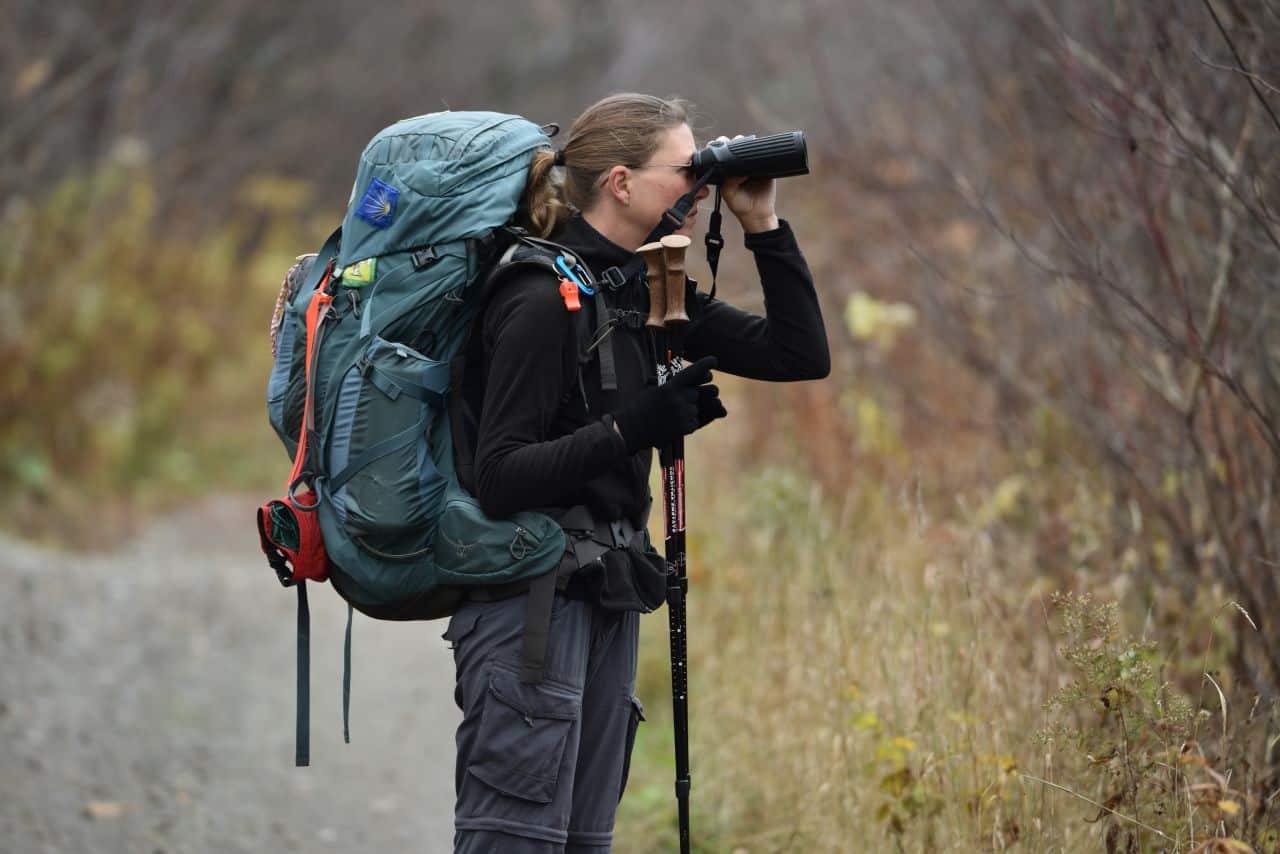
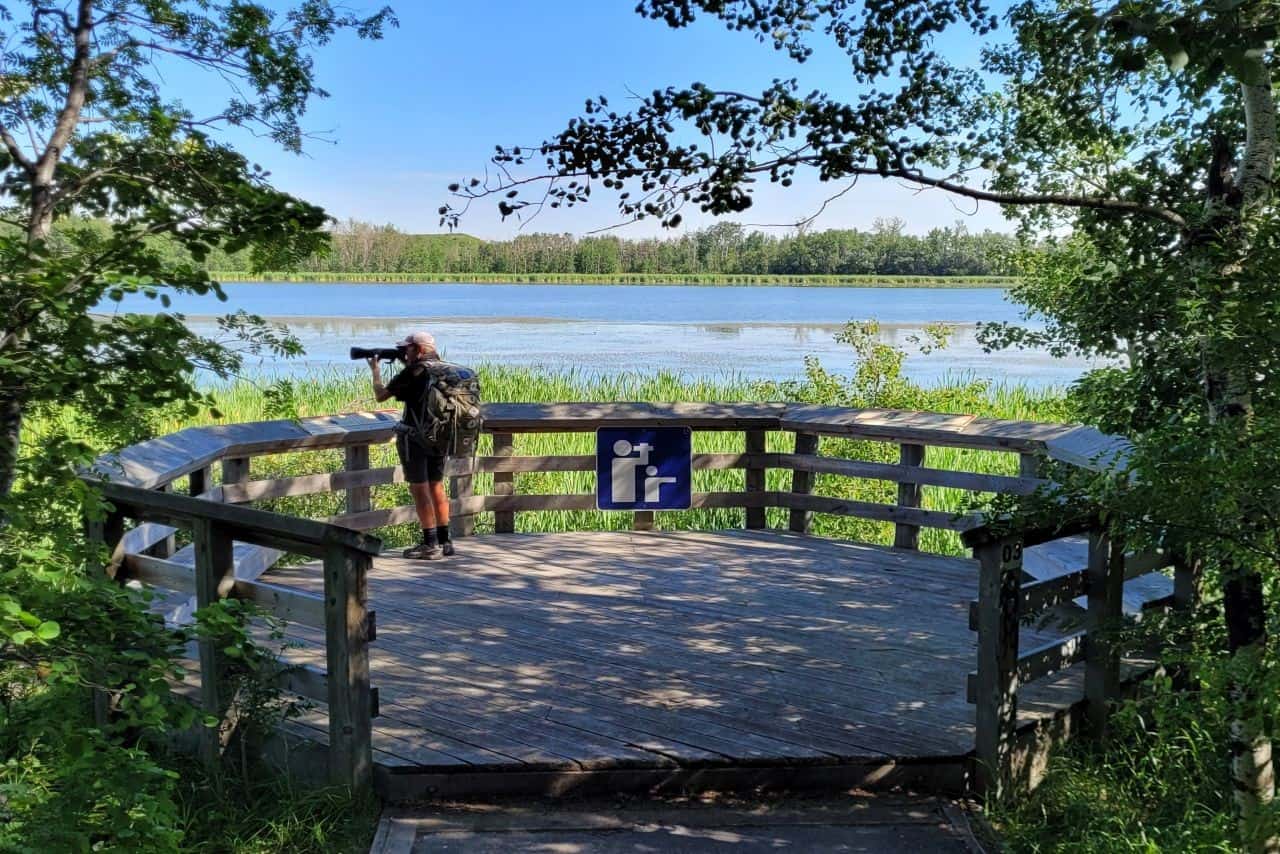
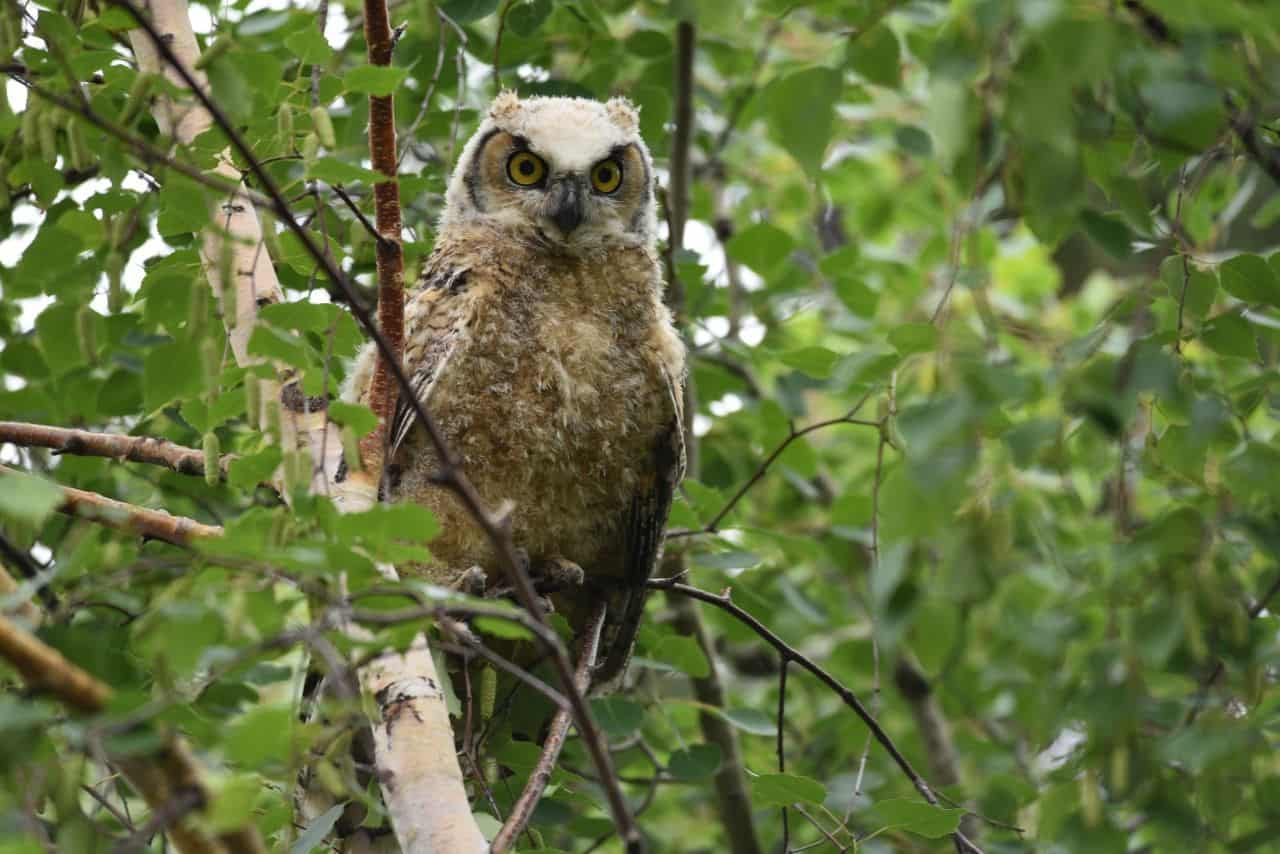
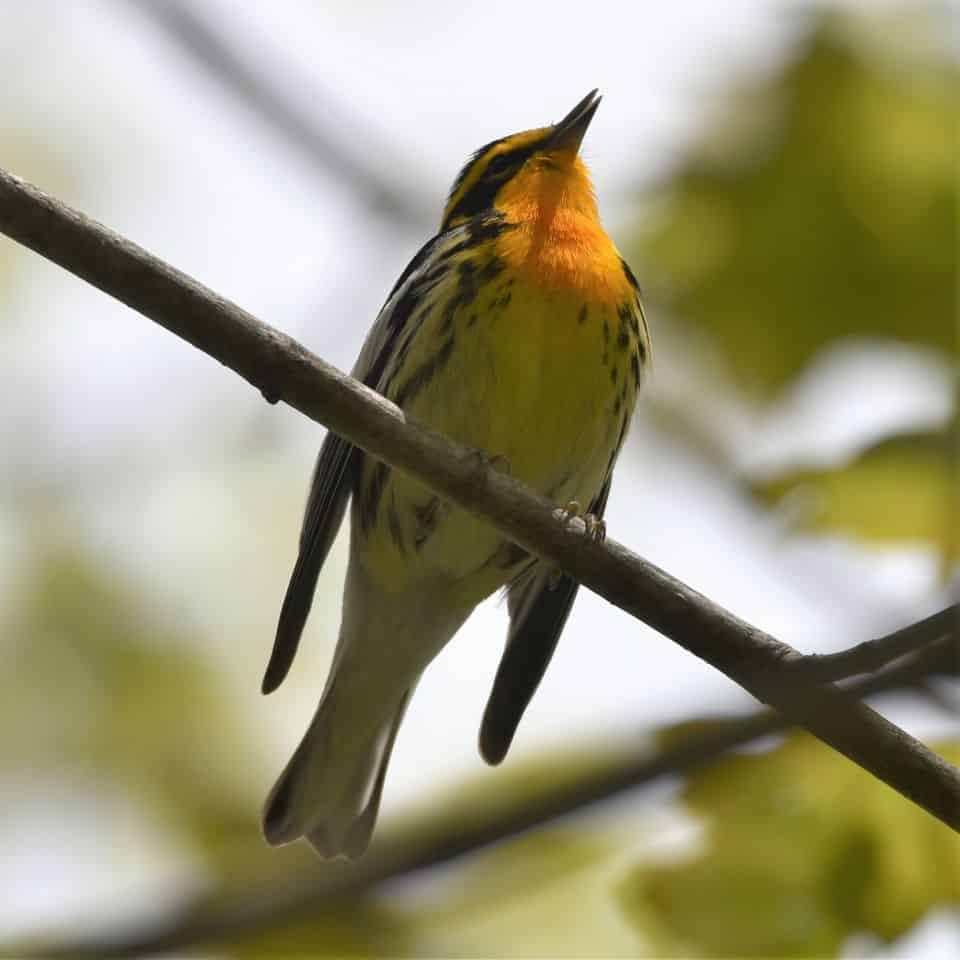
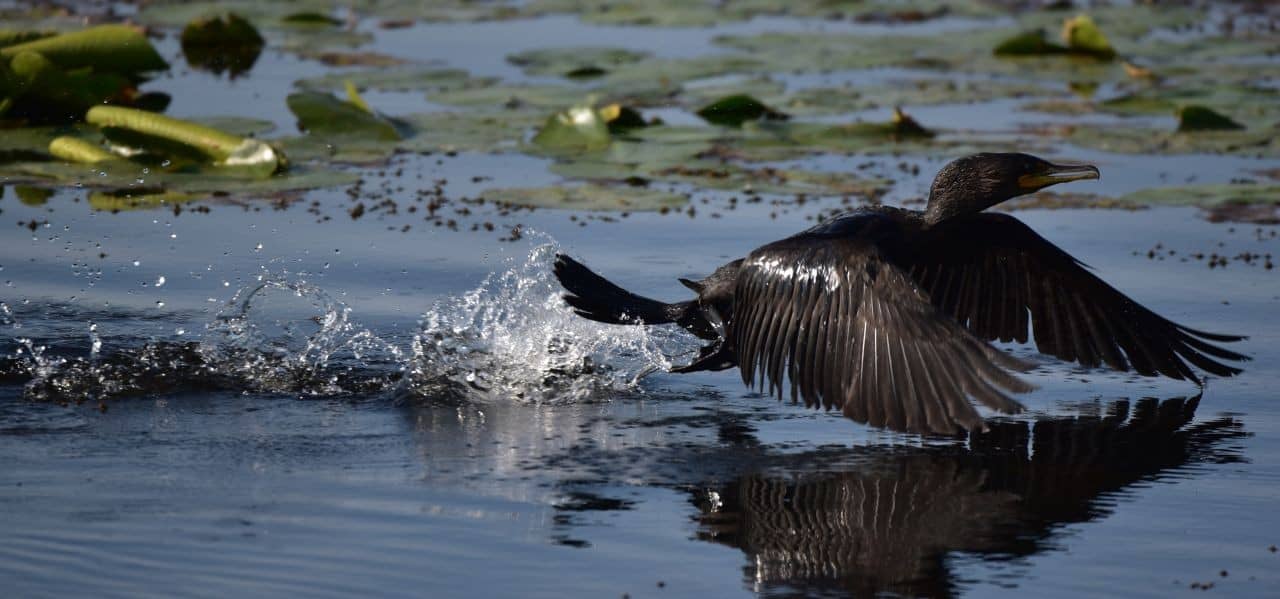
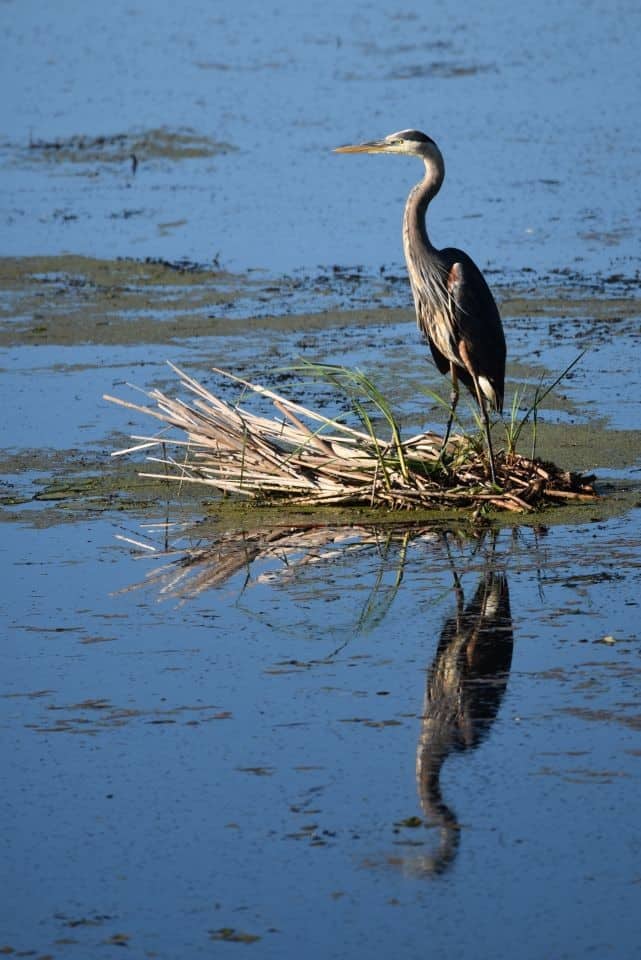
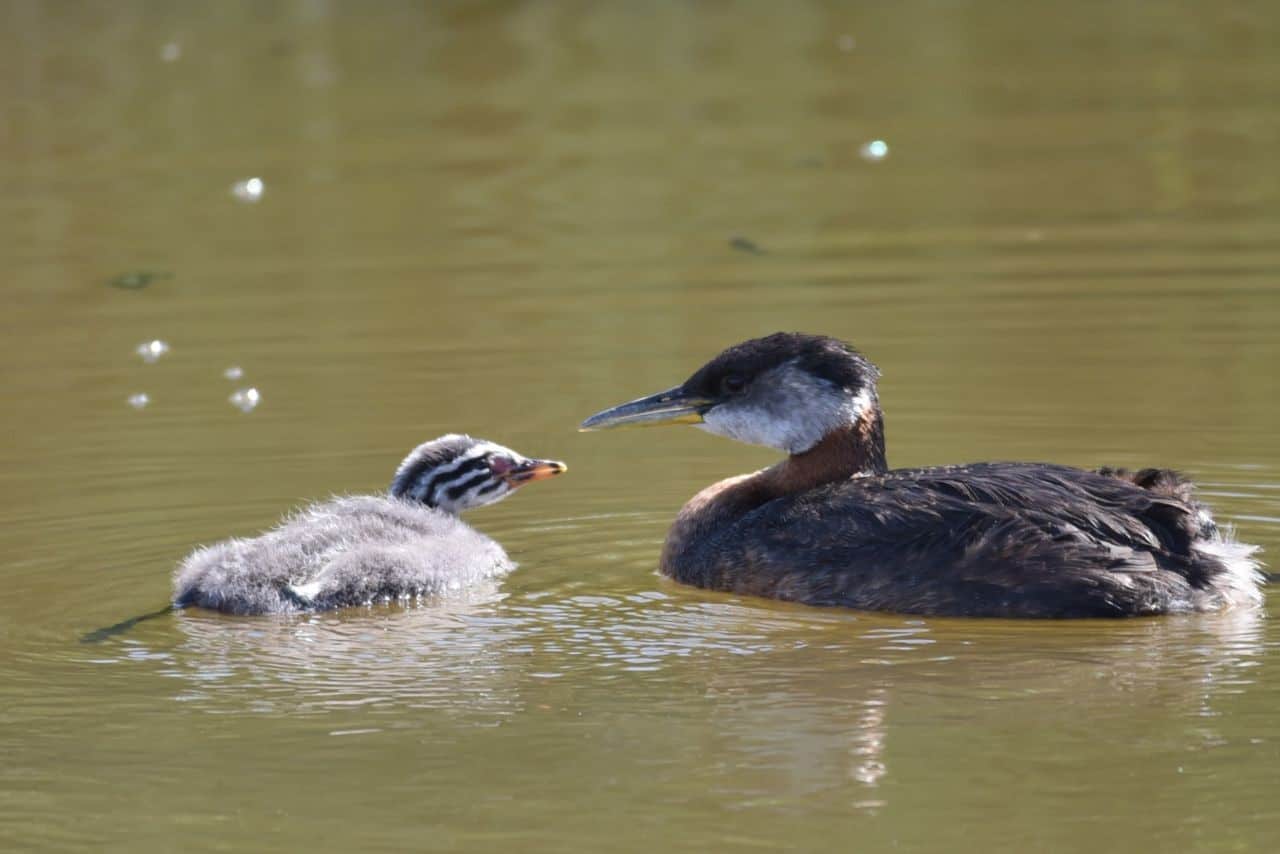
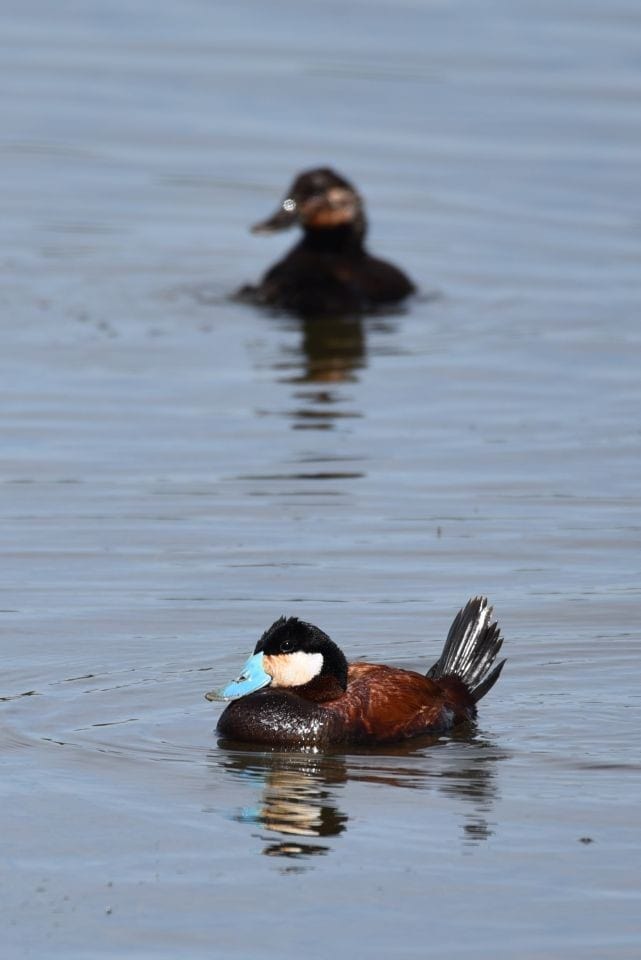
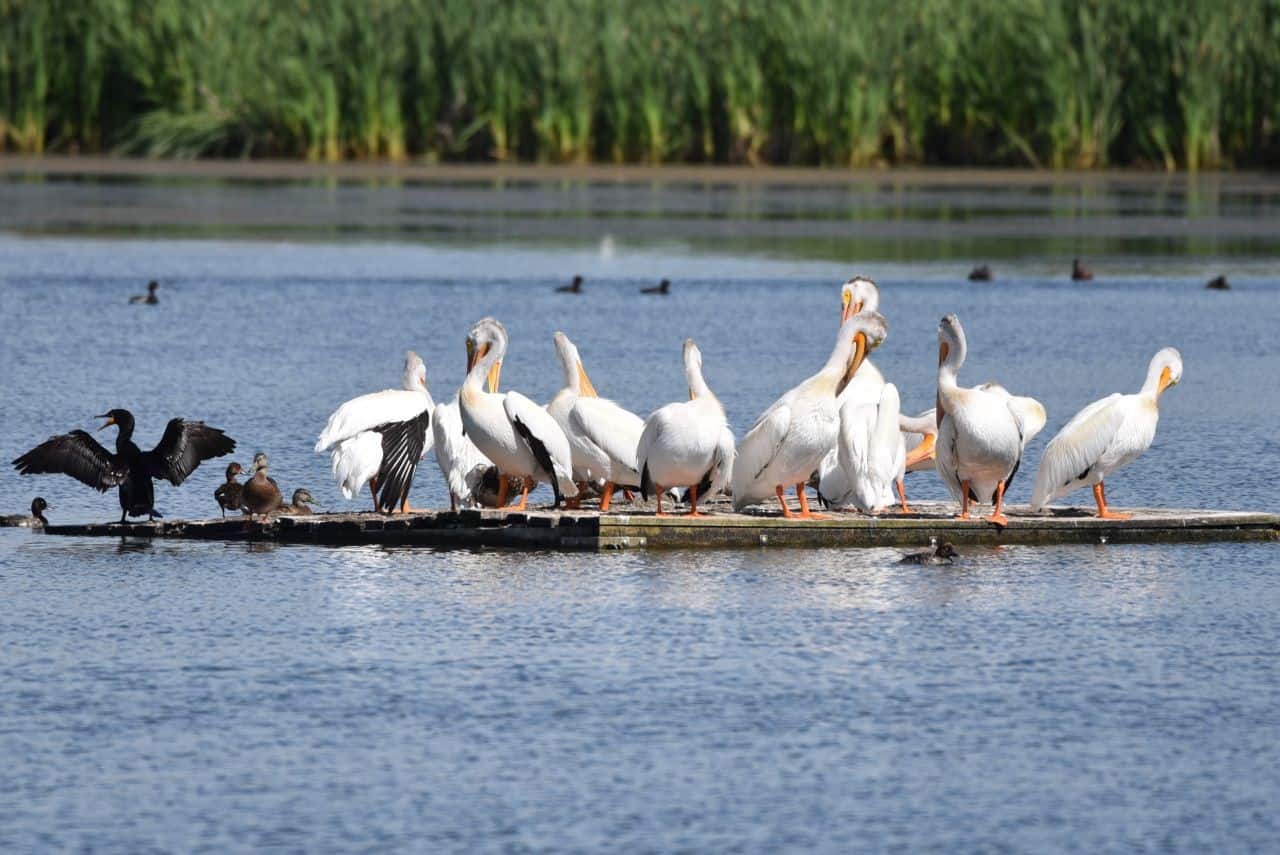
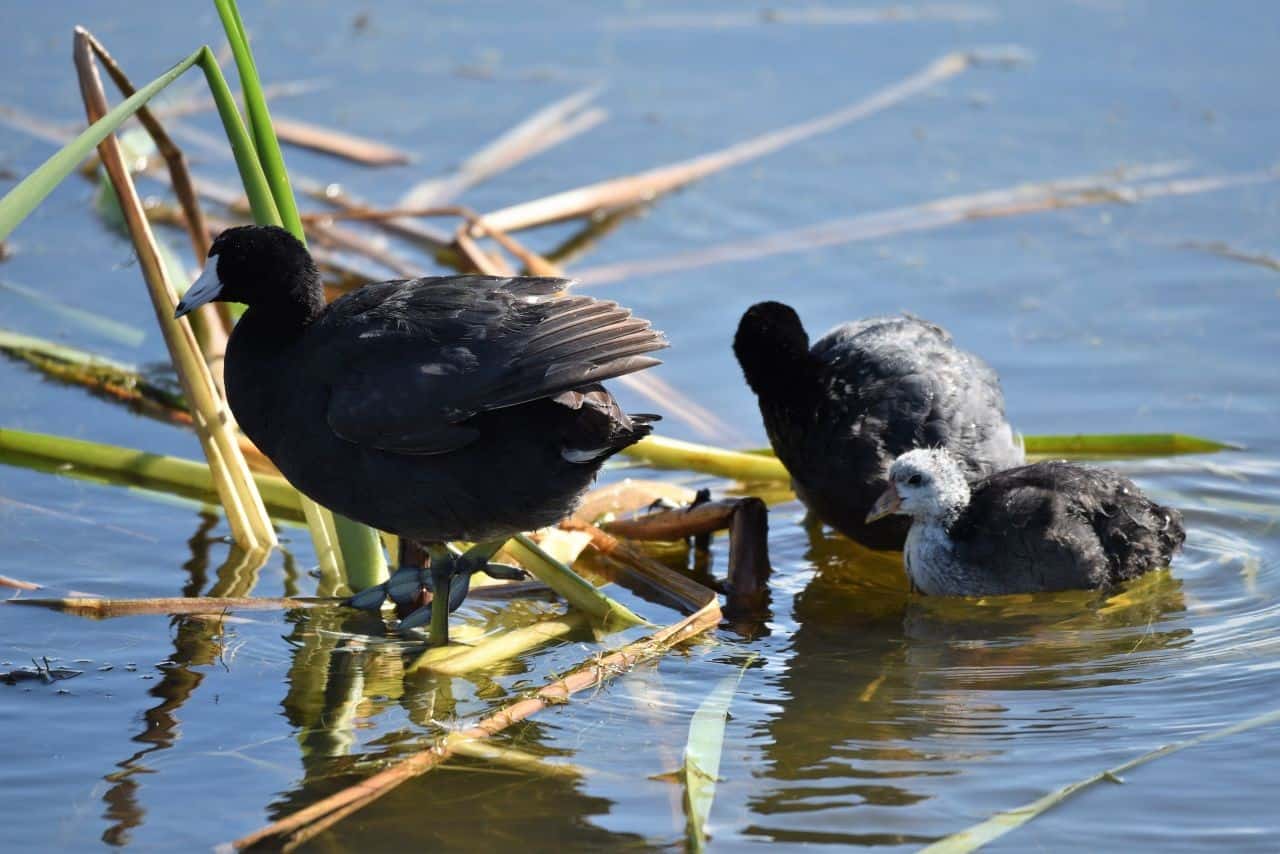
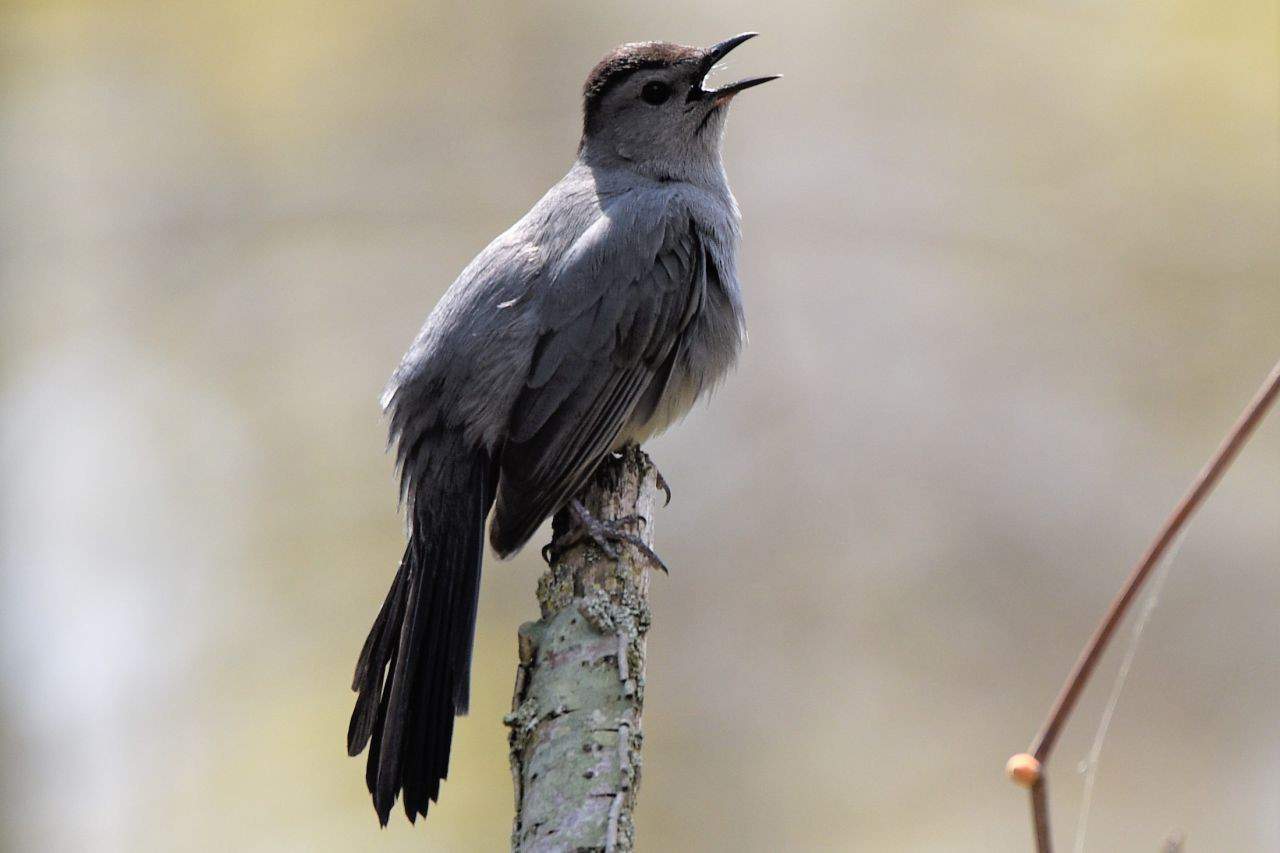
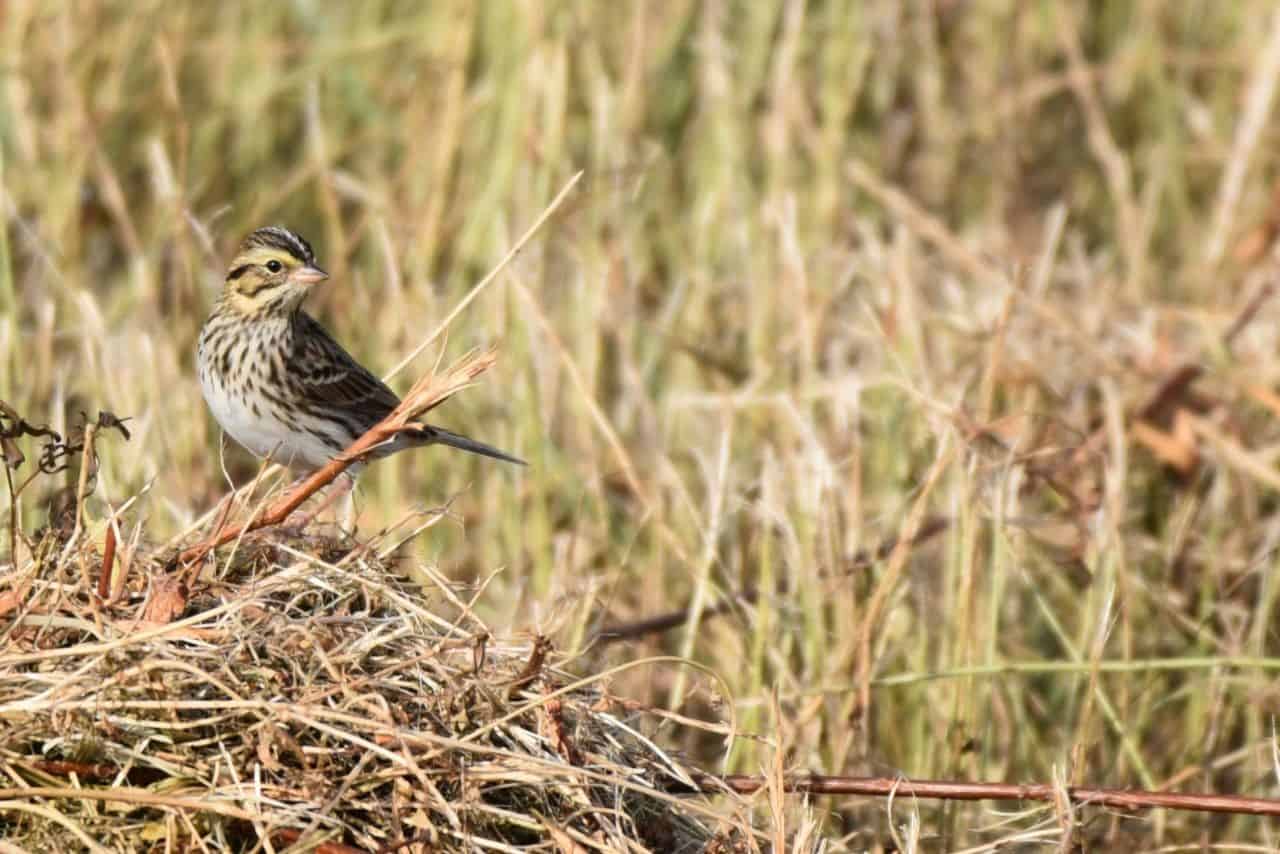
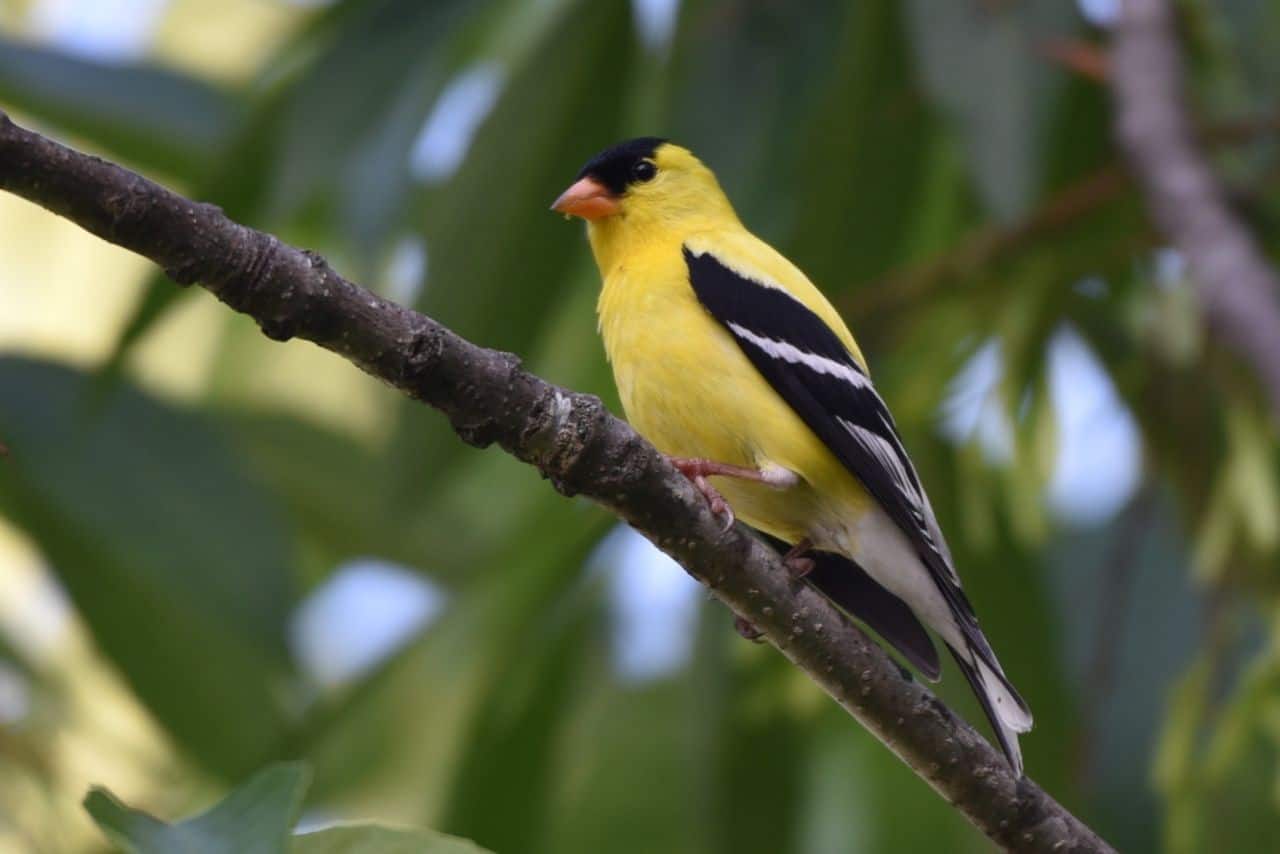
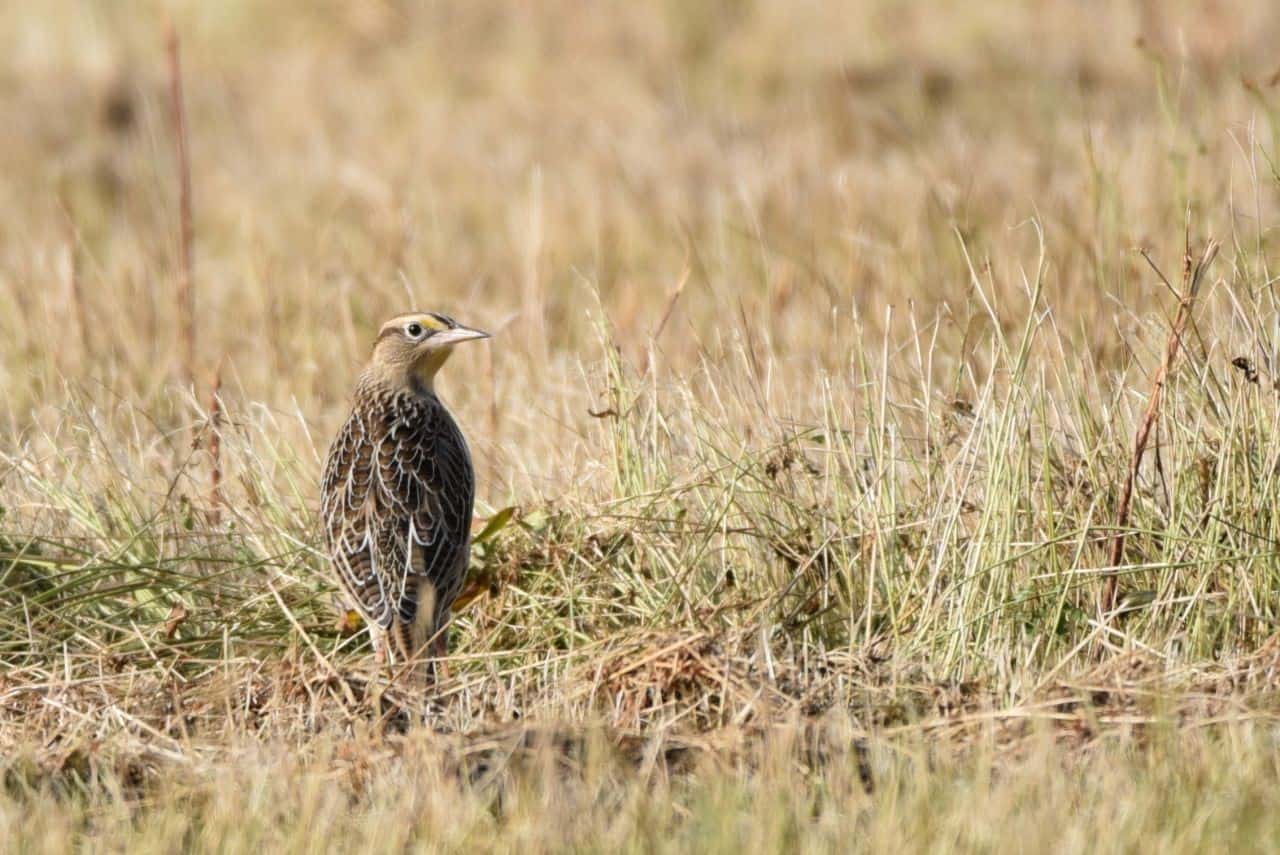
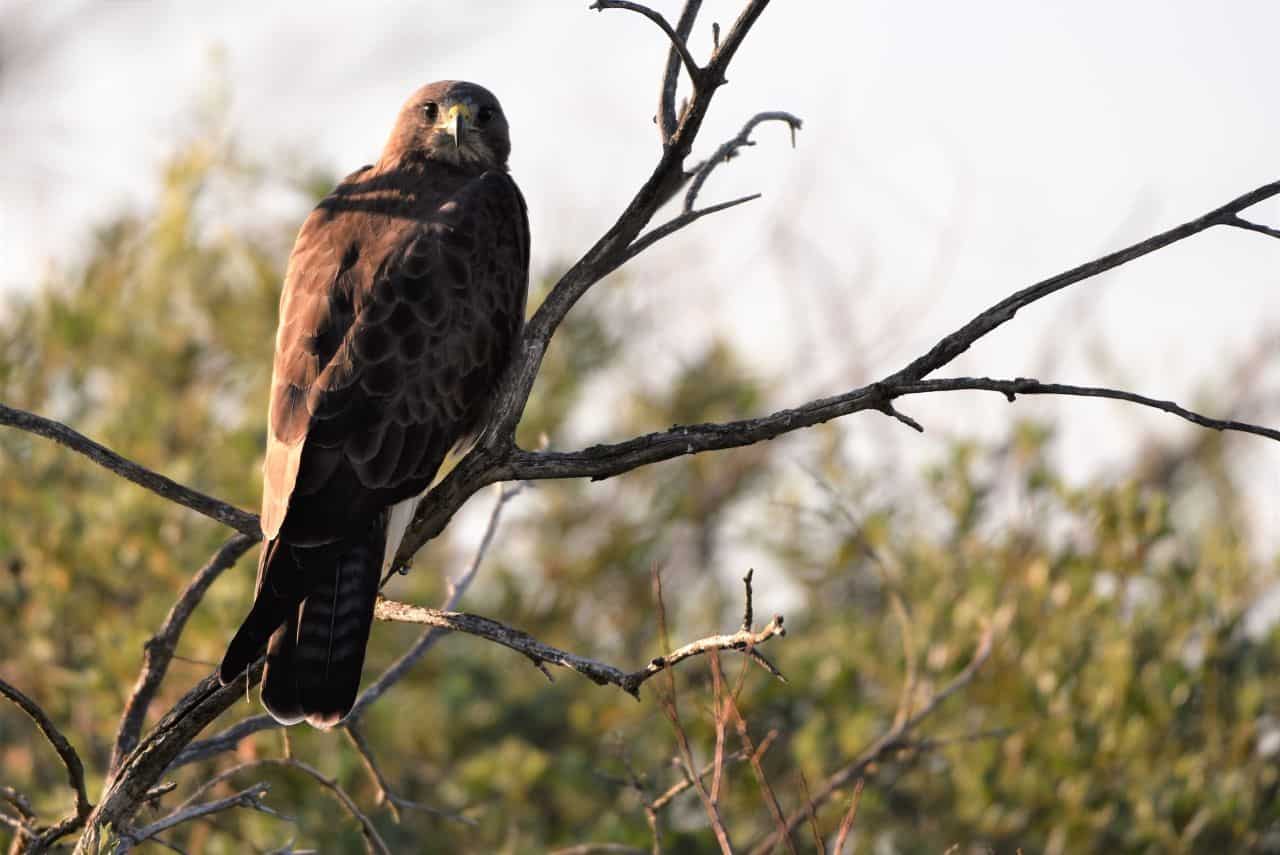
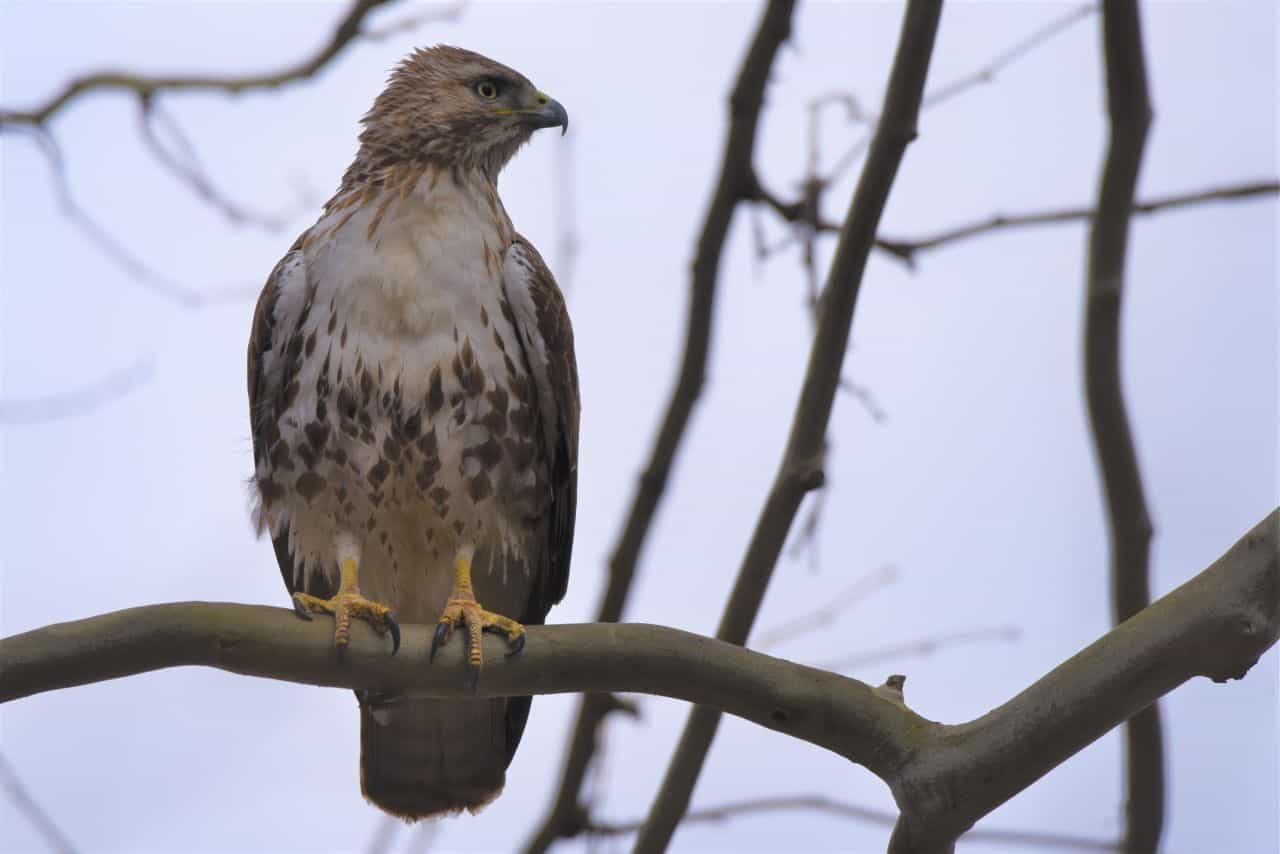
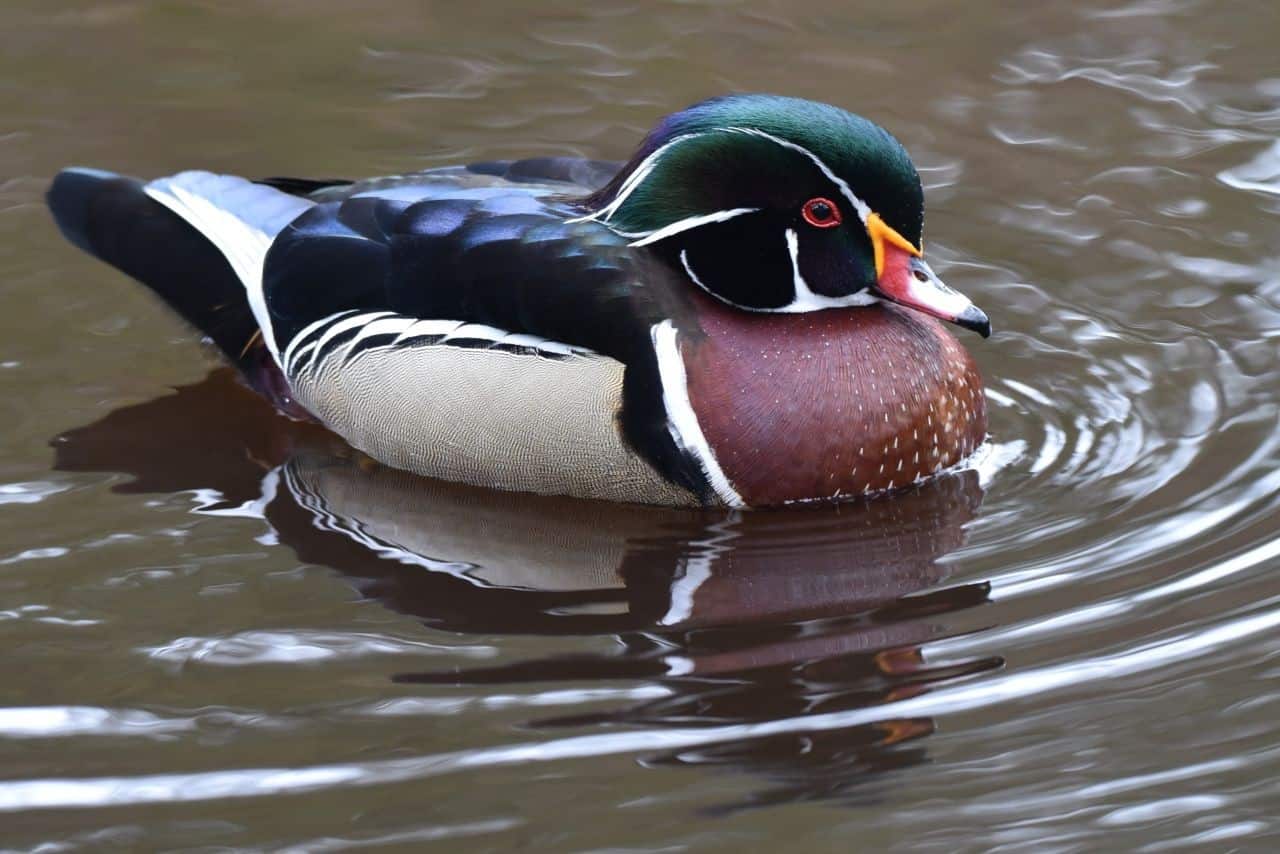
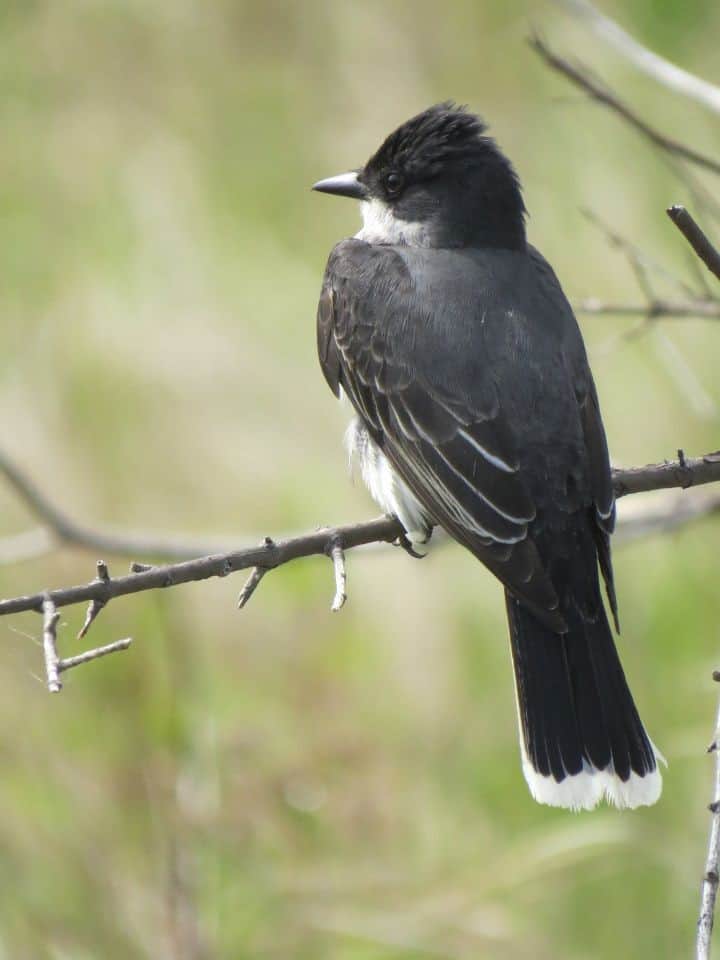
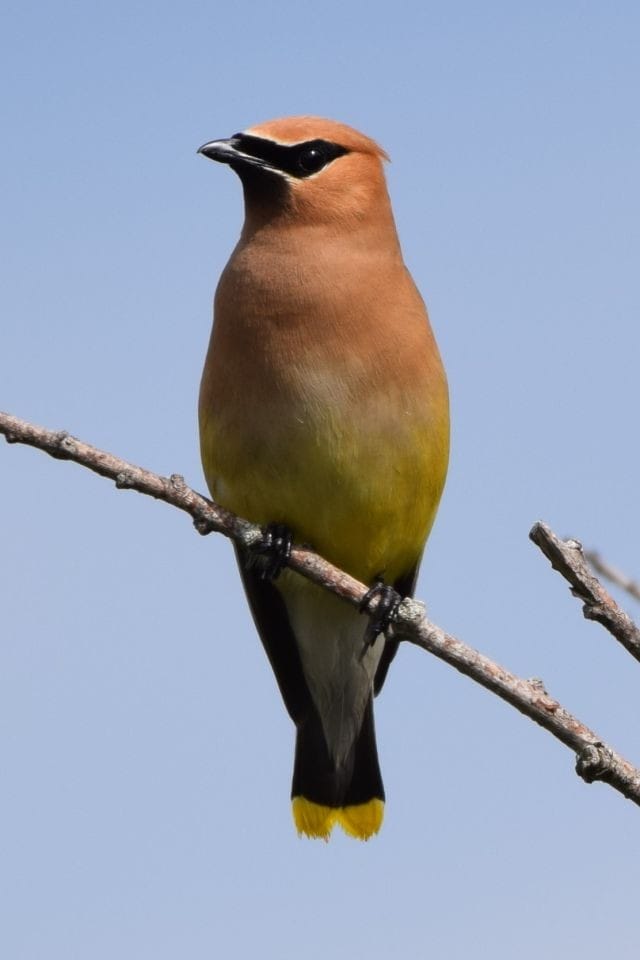
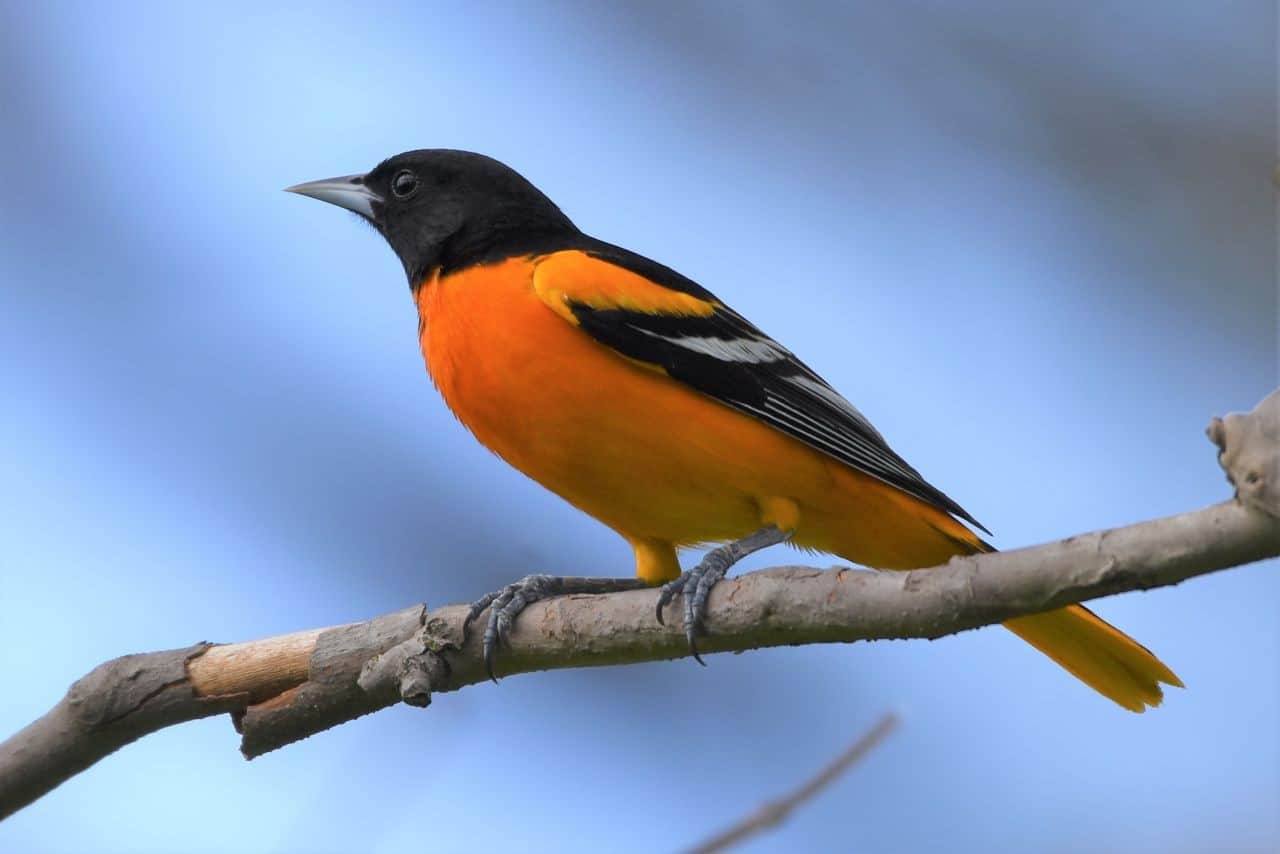
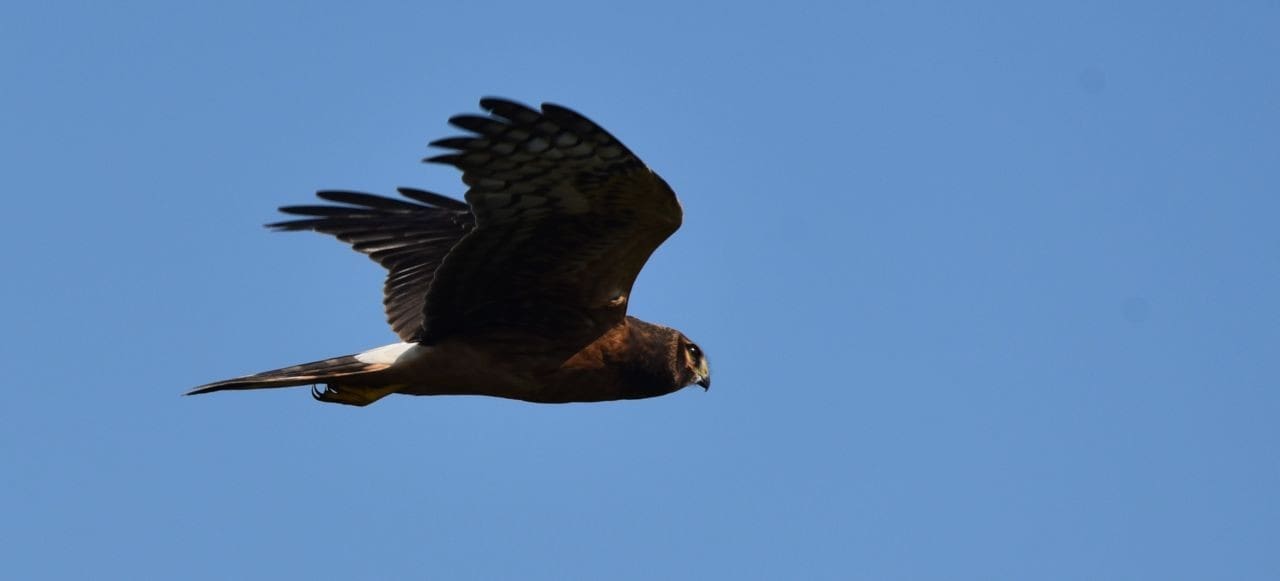
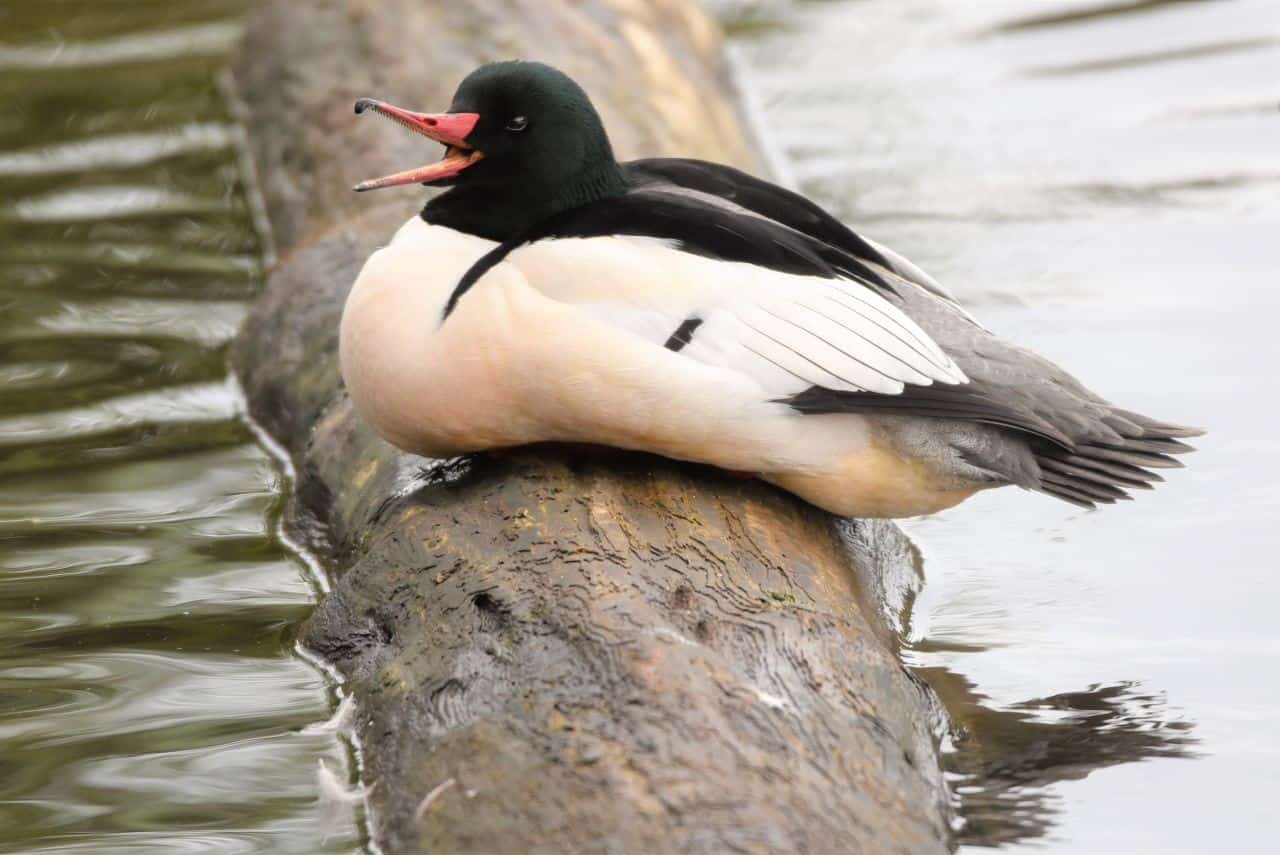
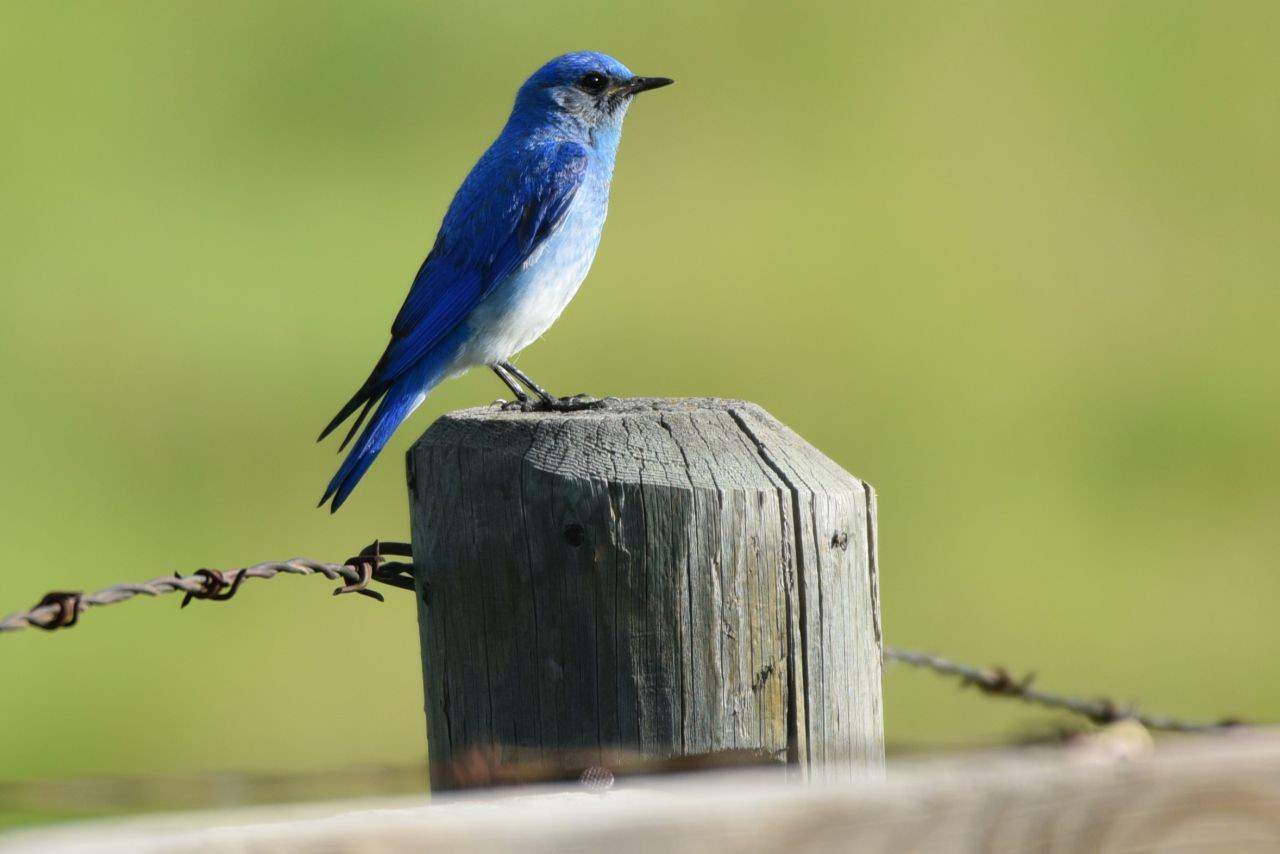
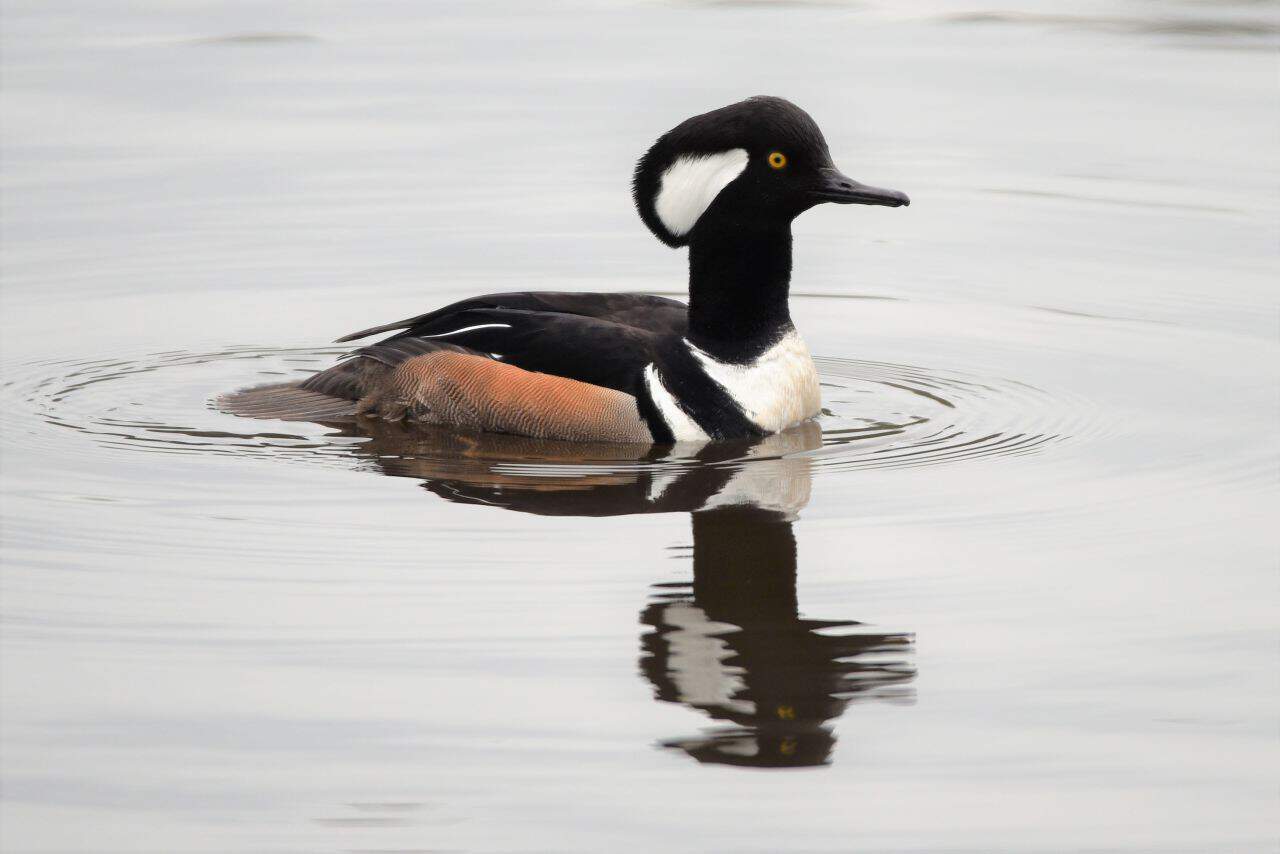
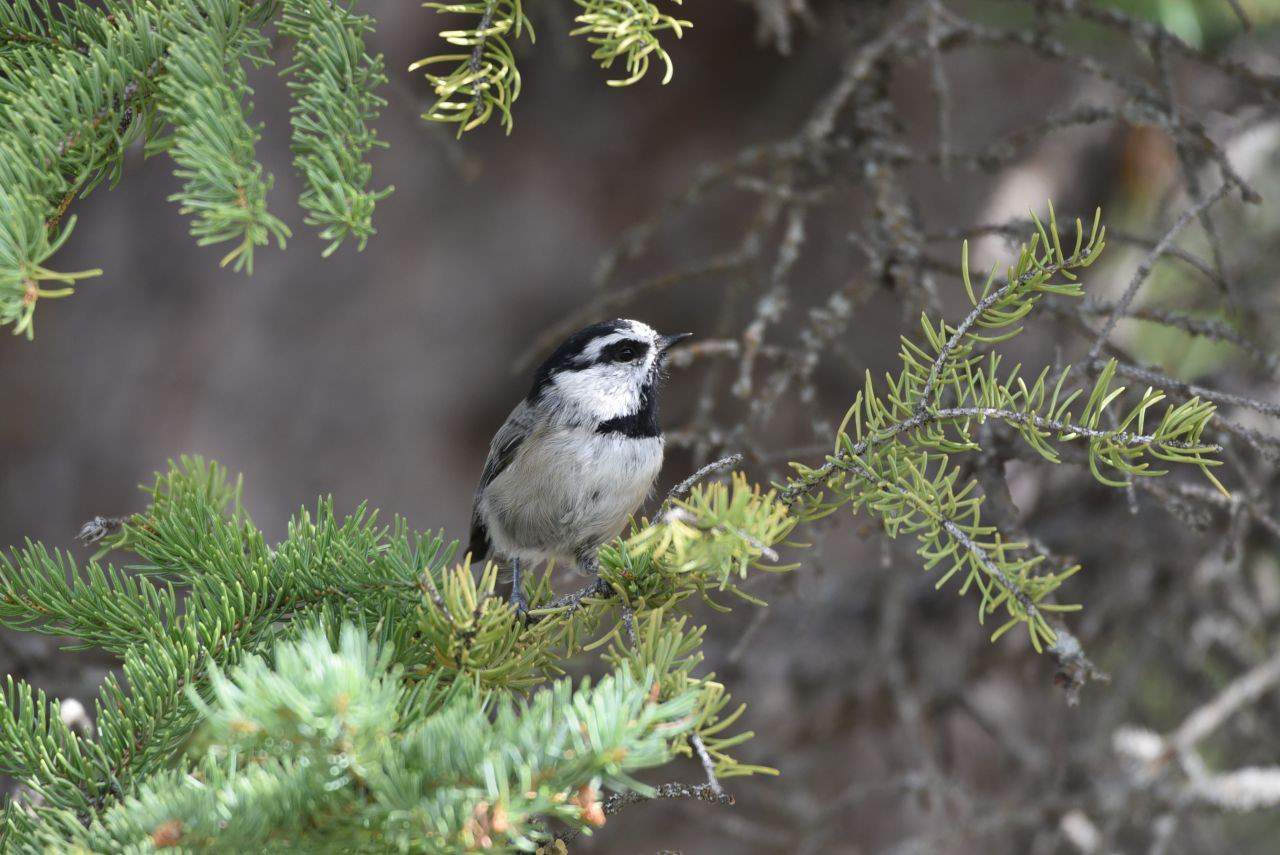
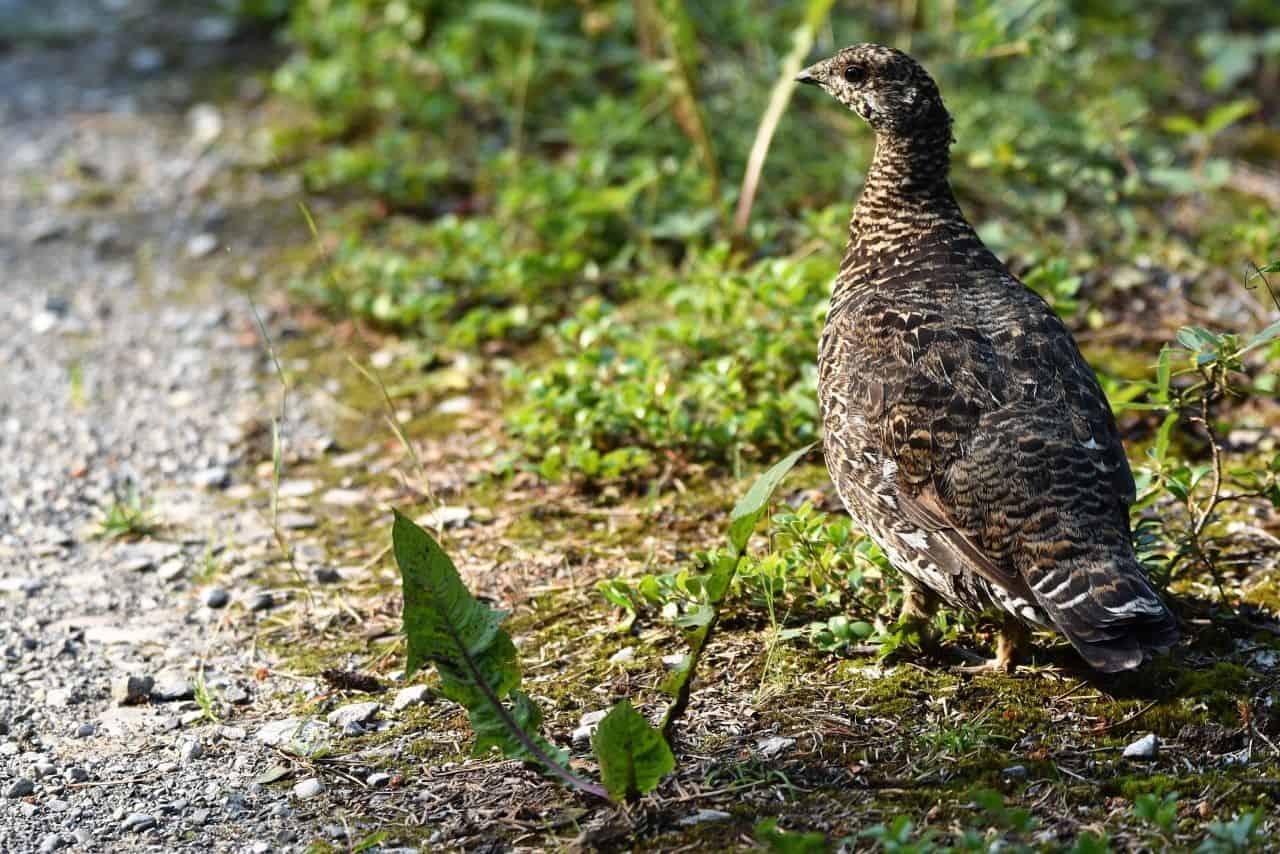
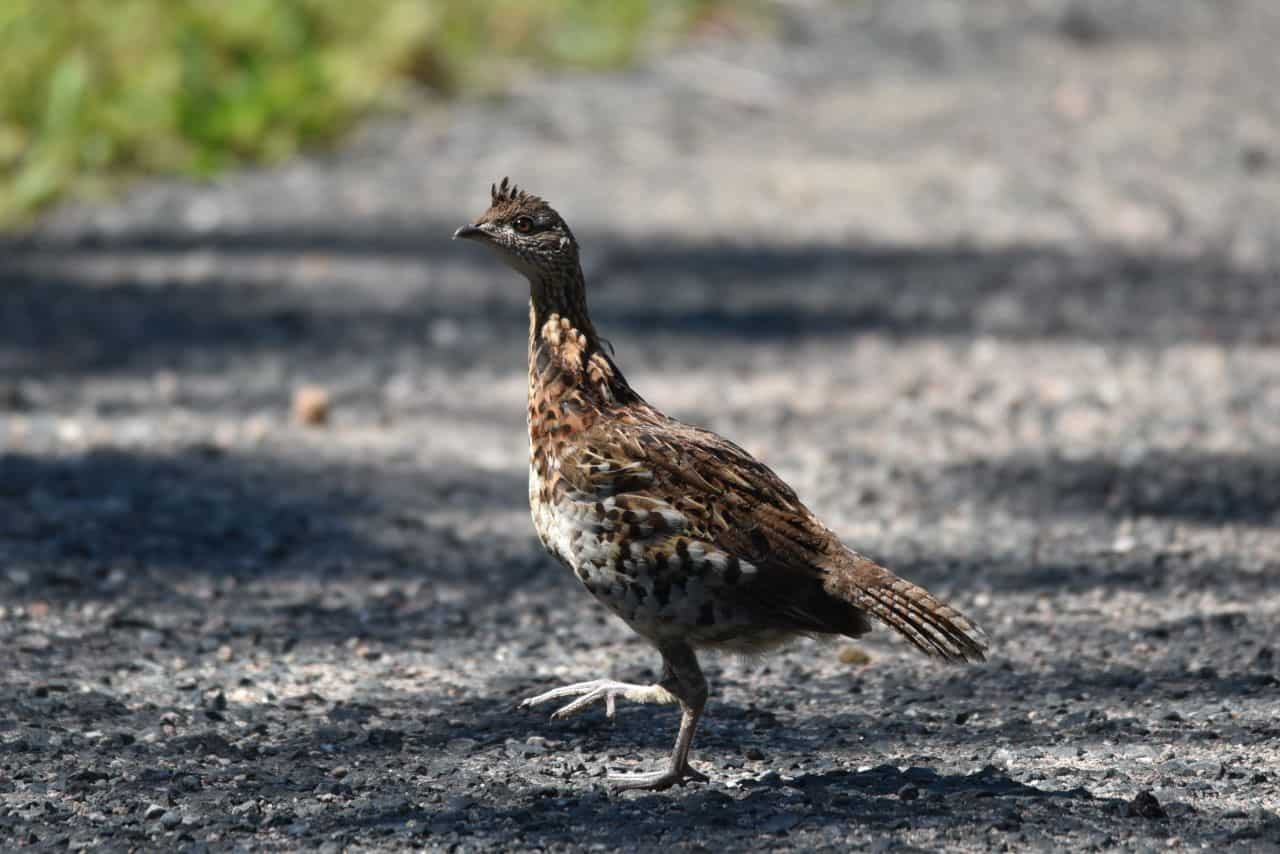
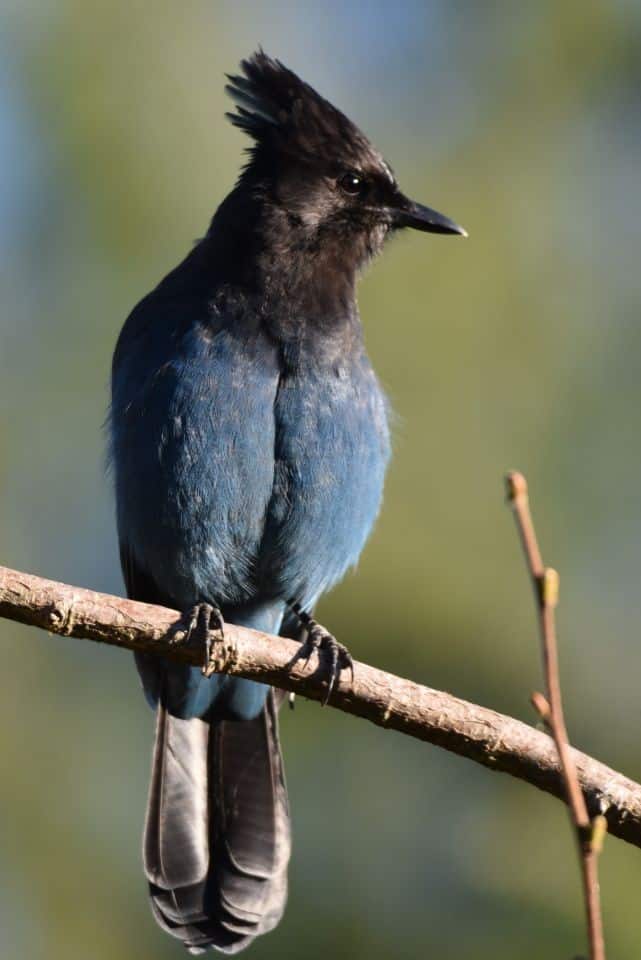
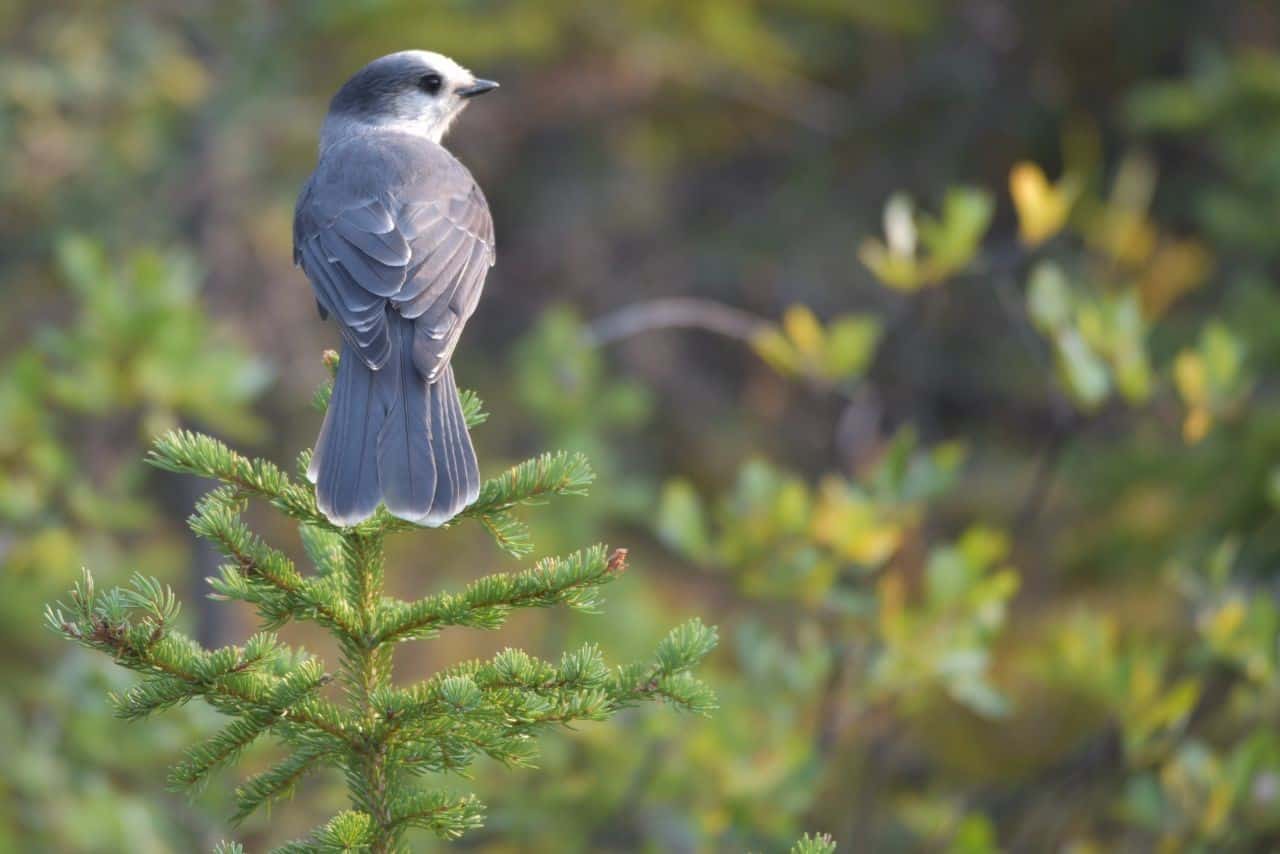
Comments 6
Wow.... 23 photos of birds and all are so cool. Really like the photos of the Hooded Merganser, Northern Harrier, Red Tailed Hawk, Cedar Waxwing and Owl.
Love this Sonya!
I knew I was going to love this article before I even opened it. That gorgeous cedar waxwing on the cover photo reeled me right in! My favourite.
These are amazing photos! I will definitely have to wander some of these areas next spring. Thanks for sharing!
EH Canada Marketing Group Thanks! My favourite it is the baby owl - like an enormous pompom with a priceless expression. It was really windy, and the poor thing was struggling to stay in the tree.
Cary Horning Thanks! Finding and photographing birds is a lot of fun!
Sonya Richmond So many close ups too. Very cool.